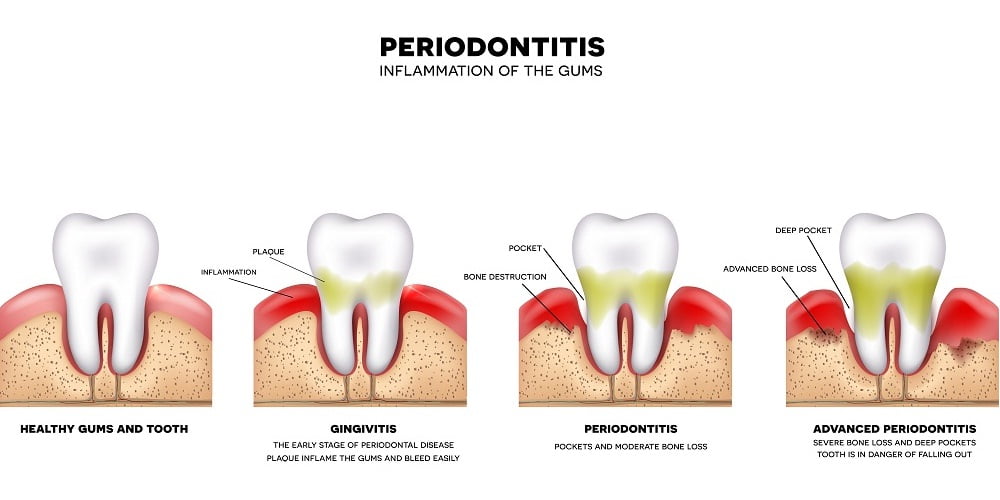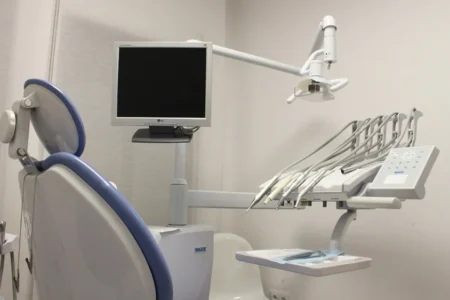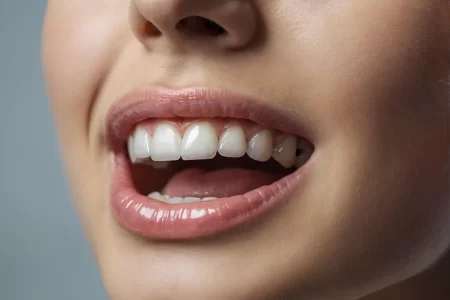Causes of Periodontal Disease (Gum Disease)
- Updated on: Jun 27, 2024
- 5 min Read
- Published on Sep 26, 2019

What causes gum disease?
Periodontal disease, more commonly known as ‘gum disease’ is an inflammatory disorder that affects teeth and surrounding tissues.
Gum disease is a pathological condition caused by a microorganism that adheres and grows on the surface of teeth. Gums, roots, periodontal ligament and alveolar bone along with teeth are the areas affected by this disease.

Risk factors of the gum disease (periodontal disease)
Following are some risk factors that increase the risk of developing gum infection:
- poor oral health and hygiene habits
- old age
- hormonal changes
- obesity
- smoking and chewing tobacco
- malnutrition
- certain medications
- diseases like leukemia, HIV, diabetes etc.
The periodontal bacterium in plaque is the main causative agent of periodontal disease. Nevertheless, several other factors like obesity, medicines and medical condition of the person can also trigger gum disease. These factors can increase your risk of periodontal disease or make it worse once the infection has set in.
What triggers gum disease?
The triggering factors of periodontal disease are enlisted as:
Poor dental hygiene
Not taking proper care of your teeth and mouth is the most common reason of developing the gum disease. The underlying trigger is the constant deposition of plaque (sticky bacterial film) on the surface and base of your teeth.
The food we eat mixes with saliva and sits in the deep pockets of receding gums, between the teeth and underneath the gum line. This serves as growing medium for periodontal bacteria.
Bacteria thrive and multiply on the food debris and cause gum disease. When this plaque and tartar is not removed, it causes foul odor and eventually teeth loss.
Genes and gum disease
Sometimes, even after taking good care of oral hygiene, a person suffers from gum diseases. This could be because of their genetic makeup (genes) which makes them more prone to dental conditions.
About 30% of the world’s population has genes which make them more susceptible to develop periodontal disease. These individuals are 6 times more likely to suffer as compared to other people.
Genetic tests are done to determine the susceptibility of a person to the gum disease. People with these genes can also prevent or control the disease with good oral care.
Early treatment can be started to keep dental cavity healthy. People having a family history of the dental disease are more prone to these diseases. You can read about the treatment of gum disease here.
Medical Conditions
Dentists suggest that there are certain medical conditions that intensify the onset and progression of gum disease. People suffering from medical conditions like diabetes, respiratory disease, heart conditions, arthritis and osteoporosis are more likely to develop gum disease.
Diabetes interferes with the body’s ability to utilize insulin. Thus, it becomes quite difficult to control the gum infection and makes it severe.
Having HIV infection can also increase the risk of developing gum diseases.
Though having one of the previously mentioned conditions may increase the risk of getting gum disease, guidance from dentists can help in maintaining your oral health.
Smoking and tobacco use
As seen in most of the cases, smoking and tobacco use is one of the most common factors in the development and progression of gum disease. In addition to this, smokers experience slow healing rate and recovery.
The build-up of plaque and tartar on the teeth surface of smokers and people who use tobacco is much faster as compared to other people. This often increases the risk of developing deep pockets in gums and cause gingivitis. The more and longer a person smokes, the higher is the risk.
Read about signs and symptoms of gum disease.
Dentists suggest that smoking makes gingivitis and other gum diseases more severe. The bone disease extended due to severe gum disease can get worse in these cases. Quitting smoking and tobacco can play a major role in bringing the periodontal disease under control.
Medications and periodontal disease
Certain drugs prescribed for blood pressure and depression can cause dryness in the mouth (xerostomia) that increases the formation of plaque. This leads to tooth decay and formation of cavities.
Drugs like oral contraceptive pills, heart medicines and antidepressants affect the overall condition of teeth and gums and make them susceptible to gum disease.
Use of steroidal medicines promotes gingival overgrowth. This makes swelling more common and promotes an easy growth of bacteria in the mouth.
Some medications that increase the risk of swelling in gums and developing gum diseases are listed as.
- nifedipine and other calcium blockers used for controlling high blood pressure, chest pain and heart conditions
- cyclosporine used to suppress the immune response in people who have had organ transplant
- phenytoin used to control seizures
Hormones and gum diseases
Hormonal changes experienced by a woman make them prone to gum diseases. Especially, during pregnancy, women are advised for regular brushing and flossing.
Fluctuating hormones make the gums more sensitive and susceptible to gum diseases. As the hormone level goes up and down in the body, changes in mouth take place. Apart from pregnancy, puberty (and menopause) can also increase the risk and severity of gum disease.
Teeth grinding
Some people have a habit of clenching and grinding their teeth and this can cause significant damage to the supporting tissue that grips the teeth firmly in its place.
Grinding teeth is usually considered a bad habit or misalignment of teeth. The habit directly does not cause any gum disease. However, if the person is already suffering from gum disease, any other damage will accelerate the progression of the disease. This habit exerts force and pressure on teeth that will speed up the breakdown of periodontal ligament and bone.
People can stop this habit by observing when it happens and then relaxing in that situation. If the person cannot control the habit, it is important to consult a dentist so that they can advise a custom guard appliance to reduce the pressure. These devices are called as occlusal guard, night guard, mouth guard or bite guard.
Stress and poor diet
Nutrition is important for overall good health as well as for efficiently working immune system. Stress lowers the ability of immune system to fight diseases. This means that the possibility of bacterial infections is quite high when the person is at stress.
Stress can make periodontal disease worse and hard to treat. Apart from stress, malnutrition can also lower the body’s ability to fight periodontal infection. Severe Vitamin C deficiency can cause bleeding of the gums.
Misaligned teeth and gum disease
Misaligned and over-crowded teeth make it difficult to brush or floss teeth. This enhances the plaque deposition and tartar formation. More the plaque and tartar formation more will be the risk of gum diseases.
Dentists should be consulted for deciding the best ways to clean teeth. Special tools that make it easier to brush over-crowded teeth are commercially available. Dentists also recommend threading floss to clean around the bridgework and braces. The person should consult orthodontics for crooked teeth as this could straighten up the smile and prevent further chances of developing gum disease.












